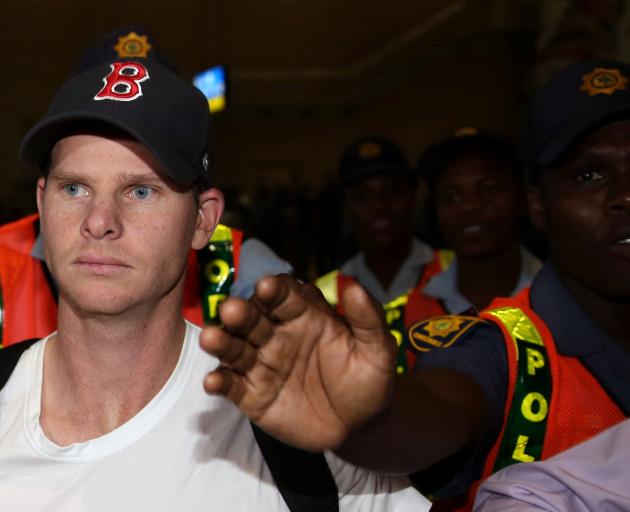
To those of us who have followed Australian cricket for years, the ball-tampering doesn't really come as a surprise. The Australian cricketers have pushed the boundaries of sportsmanship for decades and I'm not sure this particular team has been any better or worse than teams led by Michael Clarke, Ricky Ponting and their predecessors.
Watching the saga unfold has reminded me of a particularly good business book written by Jim Collins in 2009 after the global financial crisis, How the Mighty Fall, which explores the five stages (and warning signs) of decline.
The first stage being "hubris, born of success ... great enterprises can become insulated by success; accumulated momentum can carry an enterprise forward for a while, even if its leaders make poor decisions or lose discipline. Stage 1 kicks in when people become arrogant, regarding success virtually as an entitlement, and they lose sight of the true underlying factors that created success in the first place."
The warning signs for Australian cricket have certainly been there and their sense of righteousness and entitlement has meant they have not seen it for themselves. In saying that, as satisfying as it is to watch the Australian cricketers squirm, I have a real sense of sadness that we might not see David Warner back on the international stage, and even more so Steven Smith. Both are masters of their craft and in my view, if Steven Smith were to ever captain Australia again, he would become their best-ever leader.
One of the most fascinating sporting speeches I have heard is Brendon McCullum's Cowdrey Lecture, delivered at Lords in 2016 (this can be found on YouTube). Brendon, by his own admission, is no angel and as you listen to his speech, it is clear that he has used his career low points, of which there were many, to shape how he grew as both a player and a leader. His leadership is what he is now praised for widely in worldwide cricket circles. In his speech he spoke of a contentious moment in his career when he ran out Muttiah Muralitharan (in a game against Sri Lanka at Lancaster Park in Christchurch, 2006). "If I could turn back time, I would. We were within the laws of the game but not the spirit and there is a very important difference which is glaringly obvious to me years later."
How good could Stephen Smith be as an Australian captain, a year from now? He is certainly a smart character, and some time for reflection and going back to why he loves and plays the game in the first place would bring him to a level of humility that all great leaders need. Some leaders find such humility naturally, others the hard way. Watching Steven Smith break down in his interviews demonstrates he is on the first step of that hard path.
Finally, in a change of direction, I have to give my last words to the most hard-hitting column I have read over the ball-tampering scandal, words from Holly Wainwright. She speaks of the "disgrace of a nation. Australia's shame" and compares the degree of national outrage over the ball-tampering with the muted response when some Australian sports stars physically abuse women, sometimes hospitalising them. In her words, "if a sportsman really wants to feel the wrath of Australia, it seems, he needs to damage a cricket ball. Not a woman."
Regardless of where we stand on the ball-tampering scandal, it takes words like these to put such events into perspective. Hubris, entitlement and arrogance in elite sports teams is endemic. Let's hope that Australia's outrage over ball-tampering will cause navel gazing amongst many sports teams as to how they want to play the game, but, more importantly, how they want to live their lives.
- Anna Campbell is managing director of AbacusBio Ltd, a Dunedin based agri-technology company.
Comments
Once a cricket game loses it sportmanship and respect for the other teams , it ends up looking like the circus of ancient Rome in which spectators are eager to see slaughtering of competitors' self-respect.












